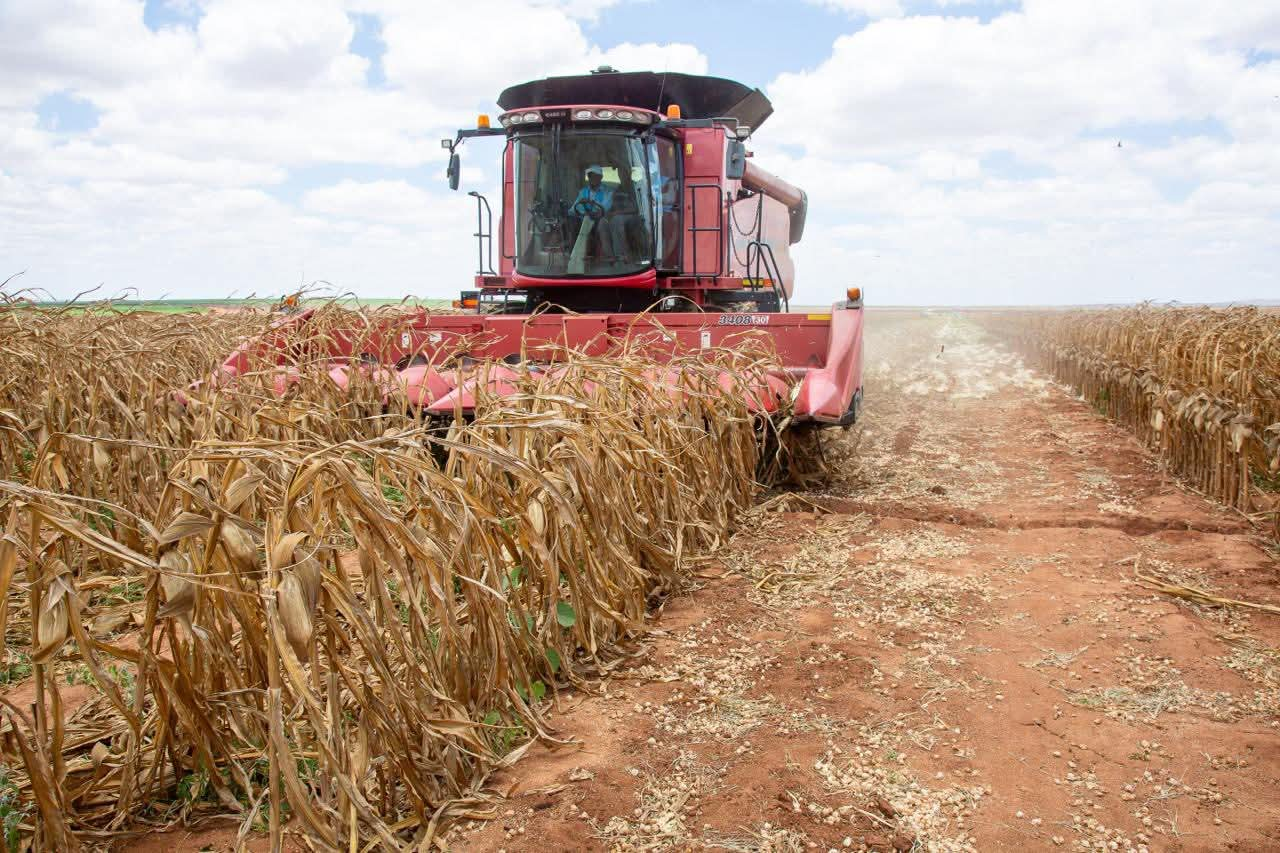 Maize Harvesting at the Galana Kulalu Irrigation Scheme. Photo by PCS
Maize Harvesting at the Galana Kulalu Irrigation Scheme. Photo by PCS
By Ryan Mumo
The first maize crop at the Galana Kulalu Irrigation Scheme was harvested on Saturday, signalling a major turnaround for a project once dismissed as a failure just two years ago.
The Galana Kulalu Food Security Project, situated on vast government land spanning Kilifi and Tana River counties, is being implemented under a public-private partnership between the government and Selu Limited. The venture is now being hailed as a model of success in agricultural revival and food security.
From the initial 1,500 acres under cultivation, yields of between 28 and 30 bags of seed maize per acre have been recorded — a promising start that officials say demonstrates the viability of irrigation farming in Kenya’s arid and semi-arid regions.
Water and Irrigation Cabinet Secretary Eric Mugaa led senior government officials in launching the harvest. He lauded the progress, noting that the project is aligned with the government’s Bottom-Up Economic Transformation Agenda, which seeks to boost food production and cut Kenya’s annual food import bill of KSh500 billion.
“The Galana Kulalu project is on track to become a food hub for Kenya, supporting our mission to achieve food security. The success we are witnessing today is evidence that with the right investment and partnership, we can transform Kenya’s agriculture,” said Mugaa.
He revealed that 330 acres of the crop will be harvested within five days and that Selu Limited can now cultivate 6,300 acres using water supplied by two small dams already constructed.
Mugaa further disclosed that the government plans to build a larger dam in Galana to provide water for up to 200,000 acres of farmland, ensuring sustainable irrigation for future expansion.
Selu Limited CEO Nicholas Ambanya said the project has so far created about 200 jobs and that more employment opportunities will arise as the company scales up production to 3,200 acres by the end of 2025, 5,400 acres by June 2026, and eventually 20,000 acres as water availability improves.
Irrigation Principal Secretary Ephantus Kimotho, who accompanied the CS, emphasized that Galana Kulalu has demonstrated the transformative power of irrigation in unlocking Kenya’s food potential.
“This project has proven that, with irrigation, even arid and semi-arid lands can contribute meaningfully to our national food security goals,” he said.
The government, he added, is engaging additional partners interested in developing up to 180,000 acres under cultivation.
National Assembly Water, Irrigation and Blue Economy Committee Chairman Kangogo Bowen commended the project’s progress, affirming that Parliament would continue allocating funds to enhance irrigation infrastructure.
Also present were National Irrigation Authority Chairman Gilbert Maluki and CEO Charles Muasya, who both praised the partnership for setting a new standard in sustainable agriculture.
The first harvest at Galana Kulalu marks not just a milestone in Kenya’s quest for food security but also a powerful statement of revival — transforming what was once seen as a failed dream into a beacon of modern, irrigation-driven farming.